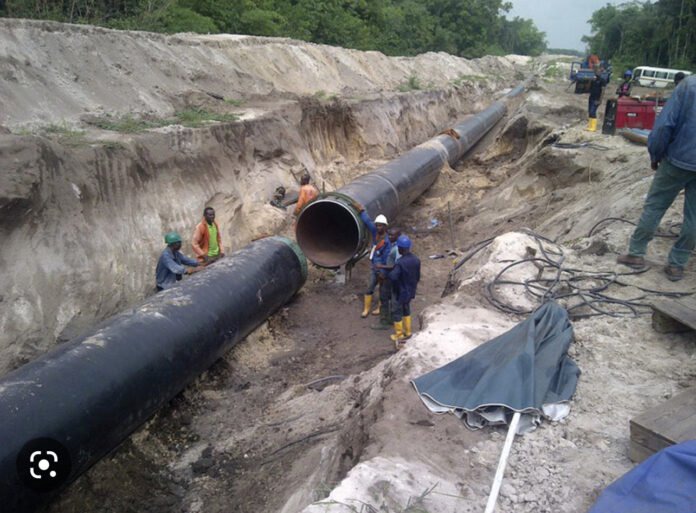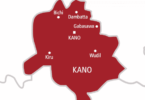
Nigeria has completed about two-thirds of a pipeline that will transport gas produced in the south of the country to the power-deprived north, the state energy company said.
“We are continuing to fund it despite the fact that we do not have third-party financing on this project,” Kyari said during an inspection of building work. “We have so far spent over $1.1 billion on this project from our cash-flow.”
While the Nigerian government initially negotiated the bulk of the funding for the $2.5 billion project with Chinese lenders headed by the Bank of China, that deal was not finalized.
The pipeline that will travel from the central Kogi state to the trading hub of Kano is intended to increase domestic consumption of gas and boost supply to energy-starved industries in the northern part of the country.
Nigeria has Africa’s largest proven gas reserves estimated at about 200 trillion cubic feet, most of which is untapped, flared or reinjected into oil wells.
Around 70% of work on the main line and about 50% on the overall project has been finished, Seyi Omotowa, managing director of the NNPC’s gas subsidiary, said in an interview on local broadcaster, Arise News, on Tuesday. Progress on three power plants that will be fed by the pipeline “are coming at a different pace,” he said.











Leave a Comment